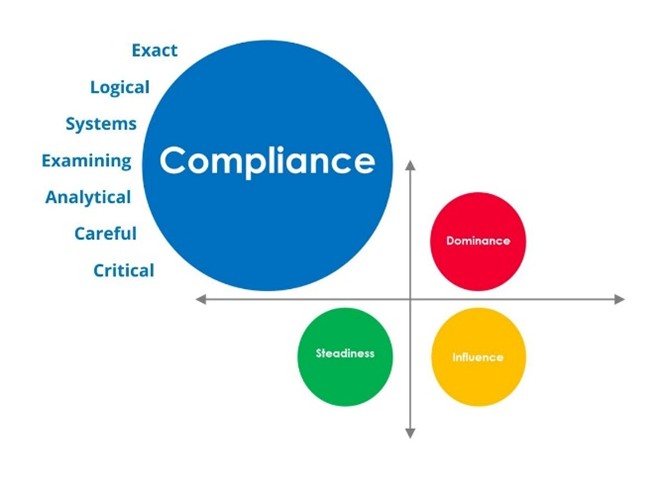
Ask enough accountants why they haven’t yet stepped confidently into advisory, and you’ll hear a familiar line:
“I’m not ready yet.”
Not because you’re unskilled. Not because you’re afraid of change.
But because you’re wired for precision and high standards.
The very traits that make you brilliant at compliance – logic, detail, process, precision, and accuracy can make advisory feel harder to start. When you’re used to having all your ducks in a row, stepping into something less defined feels uncomfortable.
That’s where perfectionism quietly takes hold. It’s not that you’re avoiding progress — it’s that your commitment to doing things properly can easily tip into over-preparing. Before long, refinement becomes the reason you never quite begin.
Why Accountants Aim for Perfect
It’s no coincidence that many accountants share similar traits. This profession naturally attracts people who value structure, clarity and accuracy — the kind of thinkers who take pride in getting to the truth in numbers.
Behavioural models like DiSC (which categorise people into styles of Dominance, Influence, Steadiness, and Compliance {learn more on DISC here} show those working in accounting frequently align with the Compliance profile. Individuals who are logical, analytical and systematic, motivated by doing things the right way.

Accuracy and control are essential in your world – they’re what make you dependable and trusted by your clients. But they also create a deep internal pressure to get things right every time. That drive for precision can quietly become a fear of getting it wrong.
The same accountability that fuels quality and credibility make perfectionism hard to shake. When your reputation rests on accuracy, it can feel safer to hold back until you’re completely certain, even when you might have everything you need to begin.
When Preparation Becomes Procrastination
In compliance, preparation is your strength. You’re trained to check, review and refine, and that discipline is exactly what clients depend on.
In advisory, that same discipline can cross the line. What starts as preparation can slowly become procrastination in disguise. You’re not waiting for motivation; you’re waiting for perfection — the perfect model, the perfect toolkit, the perfect moment.
Here’s the irony: advisory still needs those strengths. Your analytical thinking and process mindset are the very tools that make you great at it. Once progress replaces perfection.
Why Advisory Feels Different (and Why That’s OK)
Advisory feels different, because it is different. It challenges your comfort zone. There’s no single right answer or black-and-white checklist.
Instead, it’s made up of open, client-led conversations that take you into uncharted territory. Asking you to think beyond the rules and into your client’s bigger picture.
That can feel deeply uncomfortable for someone trained to find the right answer. But that uncertainty isn’t failure, it’s where your expertise meets your client’s ambition.
Advisory isn’t about dotting every “I” or crossing every “t.” It’s about stepping into conversations where there isn’t one guaranteed solution – where curiosity, not correctness, leads the way.
That means talking about what’s often not captured in the numbers: your client’s fears, roadblocks, ambitions and future goals. And as hard and complex as compliance work is, that’s the space where most accountants feel safe. The grey, unstructured side of advisory? Not so much.
So, when hesitation or procrastination creeps in – when you’re putting off a new service, client conversation or idea – it’s rarely about motivation. You’re used to operating in certainty and advisory lives in the unknown.
Can Perfectionists Succeed in Advisory?
Absolutely. You don’t need to change who you are to start advisory.
You just need to channel your strengths differently.
Use your logic to ask sharper questions, not chase faster answers.
Use your attention to detail to explore what drives your clients, not just their numbers.
Use your process mindset to guide conversations, not control them.
The shift isn’t from perfection to imperfection – it’s from certainty to curiosity.
Turning Perfection into Progress
So how do you put this into practice? Here are a few simple ways to start shifting from procrastination to progress built on small wins.
- Recognise procrastination early.
If there’s a job sitting quietly at the back of your mind, chances are you’re avoiding it because it feels uncomfortable or uncertain. Recognising that discomfort is the first step to moving through it. - Imperfection is only the beginning.
Every idea, every task, every client conversation is a step toward your eventual standard of excellence. See those imperfect first attempts as the start of something evolving – not evidence that you’re not ready. - Set limits, not endless standards.
Define what “done” means before you start. Is it a time limit? A draft? A first version? Clear boundaries stop perfectionism from expanding endlessly.
LIB Game-Changer Tips
If you’re waiting to feel ready, you’ll wait forever. The goal isn’t readiness, it’s rhythm.
- Start small and free.
Choose a client you know and trust. Offer to run a strategic advisory conversation for free. You’ll build confidence without the pressure of perfection. - Add structure.
Accountants love process, so use that to your advantage. Create a few light frameworks to keep your sessions grounded:- A short pre-meeting form for clients to complete
- A goals worksheet or “beyond the numbers” prompt
- A simple action plan template
- Lead with curiosity, not advice.
Don’t feel you have to solve every problem or walk away with a master plan. This is about exploration. Uncovering what’s important to your client and starting to shift from reporting on the past to shaping the future.
You’ll never feel fully ready — so take one step, test it, learn, and keep moving forward.



